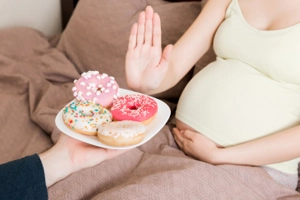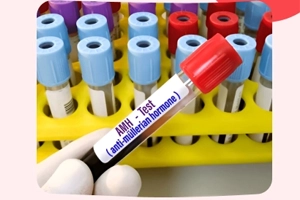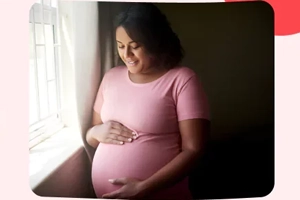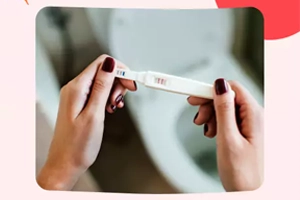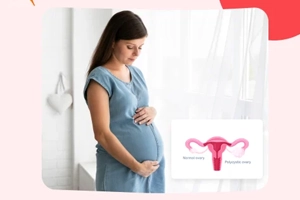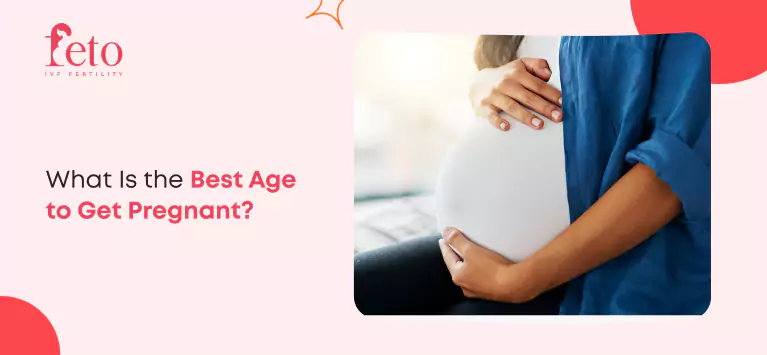
What Is the Best Age to Get Pregnant?
Choosing the right time to start a family is one of the most significant decisions in a person’s life. If you’re wondering, “What is the best age to get pregnant?”, you’re not alone. This question is especially relevant today, as many people are balancing careers, education, and personal growth before diving into parenthood.
In this blog, we’ll explore the best age for pregnancy from different perspectives—biological, emotional, and practical. We’ll also look at fertility trends, risks involved with early or late pregnancies, and how lifestyle factors play a role.
Understanding Female Fertility by Age
Fertility in Your 20s
Your 20s are widely regarded as the peak years for fertility. According to health experts, women in their early to mid-20s have the highest chances of conceiving naturally.
- Egg Quality & Quantity: A woman is born with all the eggs she’ll ever have. By her 20s, the eggs are still high in quality, and ovulation is more consistent.
- Lower Risk of Complications: Pregnancies in this age range typically have a lower risk of complications such as gestational diabetes, high blood pressure, or chromosomal abnormalities.
Fertility in Your 30s
Fertility remains strong in the early 30s but begins to decline gradually.
- Early 30s (30–34): Still a favorable age for pregnancy. Most women can conceive naturally and deliver safely.
- Mid to Late 30s (35–39): This is often referred to as “advanced maternal age.” Fertility begins to drop more noticeably, and risks such as miscarriage or chromosomal issues slightly increase.
- Note: Many women in their 30s have healthy pregnancies with proper prenatal care.
Fertility in Your 40s
While getting pregnant naturally in your 40s is possible, it becomes more challenging.
- Reduced Egg Reserve: Egg quantity and quality decrease sharply.
- Increased Risks: Higher chances of complications like gestational diabetes, preeclampsia, and chromosomal conditions like Down syndrome.
- Assisted Reproductive Techniques: Many women over 40 conceive using IVF or egg donation.
Factors to Consider Beyond Age
Age is important, but it’s not the only factor that determines the right time to get pregnant. Consider these essential aspects:
Emotional Readiness
Parenting demands patience, resilience, and emotional strength. Ask yourself:
- Are you emotionally prepared to care for a child?
- Can you handle stress and sleep deprivation?
- Being mentally ready can be just as important as being physically prepared.
Financial Stability
Raising a child involves significant financial responsibility, including:
- Medical expenses
- Education costs
- Day-to-day childcare needs
Ensure you have a stable income, health insurance, and savings before you plan a pregnancy.
Career & Personal Goals
Many individuals delay pregnancy to pursue career advancements, higher education, or personal development.
If you’re not ready in your 20s or 30s but want to conceive later, discuss fertility preservation options like egg freezing with a fertility specialist.
Support System
A strong support system—including your partner, family, and friends—can make the parenting journey smoother. Having reliable help can be vital, especially during the early years of raising a child.
| Age Range | Benefits | Potential Risks |
|---|---|---|
| 20–24 | High fertility, fewer complications, fast recovery | Less financial/emotional maturity |
| 25–29 | Excellent egg quality, balanced lifestyle | Limited career progression |
| 30–34 | Mature decision-making, good fertility | Gradual fertility decline |
| 35–39 | More life experience | Increased miscarriage and chromosomal risks |
| 40+ | Stronger emotional stability | Lower fertility, higher health risks |
What the Experts Say?
According to the American College of Obstetricians and Gynecologists (ACOG), the optimal age range for pregnancy from a biological standpoint is between 20 and 35 years. After 35, fertility decreases more rapidly, and pregnancy-related risks increase.
However, World Health Organization (WHO) data suggests that with proper healthcare and planning, women in their late 30s and even early 40s can still have healthy pregnancies.
Can You Improve Fertility at Any Age?
Yes, adopting a healthy lifestyle can support fertility regardless of age:
- Eat a Balanced Diet: Rich in folate, iron, and omega-3 fatty acids.
- Maintain a Healthy Weight: Both underweight and overweight conditions can disrupt hormonal balance and negatively impact ovulation, making it harder to conceive.
- Limit Alcohol & Caffeine: Excessive intake may reduce fertility.
- Quit Smoking: Smoking harms both egg and sperm quality.
- Manage Stress: Chronic stress can interfere with hormones related to ovulation.
The Role of a Fertility Specialist
If you’re over 35 and haven’t conceived after 6 months of trying, or under 35 and haven’t conceived after a year, it’s time to consult a fertility expert.
They can conduct tests to assess:
- Egg reserve
- Ovulation patterns
- Uterine and fallopian tube health
- Hormonal imbalances
Based on the diagnosis, treatments like IVF, IUI, or fertility medications may be suggested.
So, What’s the Best Age to Get Pregnant?
There’s no one-size-fits-all answer. From a biological perspective, the ideal age range for pregnancy is between 20 and 35 years. But real life is more complex—career goals, emotional readiness, relationship stability, and health conditions all play a role.
The “right time” is when your body is prepared, your mind is at peace, and your life is in a place where a child will be loved, supported, and nurtured.
Always consult with your doctor or a fertility expert to make informed, personalized decisions about pregnancy and parenthood.




